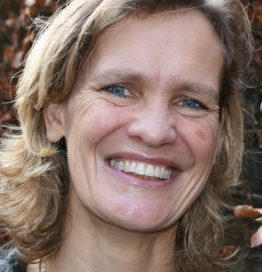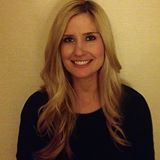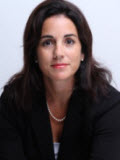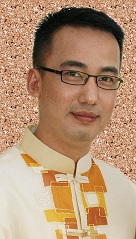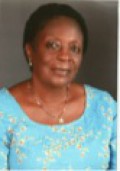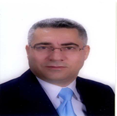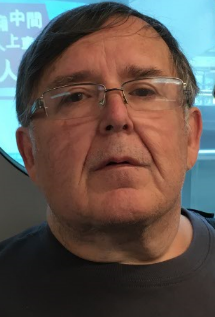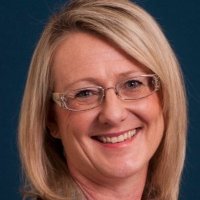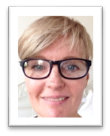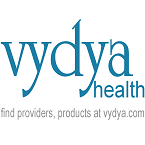Theme: New Growth and Upcoming Positions in Nursing Training
Nursing Edu 2022
The Conference Series LLC Ltd is delighted to invite you to the “24th World Nursing Education Conference”, taking place in Brisbane, Australia on September 19-20, 2022. The conference was titled "New Growth and Upcoming Positions in Nursing Training".
Aside from Nurse Education and Confirmation Based Practice, the following primary themes were highlighted during the two-day conference, which reflected the latest education research, achievements, and innovations around the globe.
• Technology, Leisure, and Education
• Continuing Professional Development
• Continuing Education
• Patient Safety
•Innovation, Academic Leadership, and Evaluation Research
• Teaching, Assessment, and Learning in University and Clinical Practice Education for Midwives.
Who can attend?
World nursing conferences brings together individuals who have an interest in different fields of nursing like psychiatric, cancer, cardiac, critical care, adult & women health, legal, pediatric and emergency nursing, midwifery, public health, healthcare and medicine from practice, research, administration, policy and education. It is a forum to explore issues of mutual concern as well as exchange knowledge, share evidence, ideas, and generate solutions.
Why to Attend???
Nursing conferences provides a global platform for exchanging ideas and make us updated about the latest innovations in nursing and healthcare. Opportunity to attend the presentations delivered by Eminent Scientists from all over the world
Track1: Nursing Training
Nurse education is the theoretical and practical training that nurses get in order to prepare them for their roles as nursing care providers. Traditionally, in nursing schools, this education is offered to student nurses by experienced nurses and other medical professionals who are qualified or skilled in educational activities. Most countries have nurse education courses in general nursing as well as specialty fields such as mental health nursing, pediatric nursing, and post-operative nursing. Typically, courses leading to autonomous registration as a nurse take four years to complete. Nurse education also includes post-qualification training in a variety of nursing specialties.
Track2: Nursing Education Research
There has never been a greater demand for nursing education research in recent history. Basic and advanced nursing practices are being defined by the new competences alluded to above and addressed in the next part as health care reform proceeds, yet there is essentially little evidence to support the teaching methodologies employed in nursing education. Furthermore, despite the fact that clinical education accounts for the majority of nurses' educational costs, little research has focused on clinical education models or clinical experiences that can help students obtain these abilities.
Multidisciplinary research training programs, including postdoctoral training to prepare a cadre of nurses dedicated to developing the science of nursing education; and Efforts to foster the development of PhD programs with faculty expertise to mentor a new generation of nursing education researchers, possibly through mechanisms through the Health Resources and Services Administration.
Track3: Education and Training for Hospital Employees
The Hospital Employee Education and Training (HEET) program was created in collaboration with the Service Employees International Union's 1199NW local affiliate and the Washington State Hospital Association Work Force Institute to help address nursing and nursing-related job shortages by educating and upgrading incumbent workers. The Washington State Board for Community and Technical Colleges is in charge of the program. HEET-funded programs across the state support industry-based education reform, including the planning and completion of nursing career ladder programs. HEET aims to create educational opportunities that support both company needs and health care professionals' career goals.
Cohort-based programs, distance learning, workplace classes, utilization of a simulation laboratory for nursing prerequisites, case management, tutoring support for those reentering academia, and atypical class scheduling are among the characteristics.
Track4: Nursing education faces technological challenges.
Technology has a huge impact on our daily lives, as well as practice, education, administration, and research. In nursing education, outcome-oriented education is now being emphasized over process-based learning, for example, through skill-based techniques, evidence-based techniques in education, providing students with a rich learning journey rather than traditional lecture models, and incorporating evolved learning technologies into many programs. All of these approaches face the same key challenge: how to combine the art and science of caring with readily available technology such that caring remains concentrated on humans.
Track5: Nursing education in the future
High-fidelity simulation, or the use of electronic mannequins that can portray a wide range of patient conditions, could be the future of nursing education. These high-fidelity simulation laboratories demonstrate an effective way for nurses to practice the skills needed to care for challenging, life-threatening situations, drill for emergency preparation, or work cooperatively with a team of health care providers.
A higher degree of competence and understanding in nursing practice comes with more revolution in nursing education. There is a growing demand for nursing educators who can instill transformative leadership in the profession through the use of simulation and other training methodologies.
Track 6: The demand for more diversity in the nursing workforce
The nursing profession has a number of obstacles in serving the evolving needs of patients and the health-care system. The underrepresentation of racial and ethnic minority groups, as well as men, in the nursing industry is a major issue. The nursing workforce will need to diversify in order to better fulfill the public's present and future health demands, as well as deliver more culturally sensitive care. To meet this demand, efforts to improve nurses' educational achievement must place a focus on improving the diversity of the student body. This is an important issue that should be addressed at all stages of nursing education.
Track 7: Nursing Science Research
The goal of expanding science knowledge is to provide better patient care, improve health, and evaluate outcomes. Meeting the nation's expanding health-care needs will require continuous advancements in the science of delivering effective treatment to people and populations and developing health systems, in addition to an appropriate supply of competent nurses. Nurse scientists play an important role in the discovery and translation of information created by nurses and other health professionals. Nurse scientists will be required to carry out this critical work, which will necessitate a steady supply of support. Nurse scientists' research has resulted in numerous fundamental advancements in the delivery of care.
Track 8: Cardiac Nursing
Cardiac nurses have particular knowledge in this field and care for patients with cardiovascular disease or health concerns related to the heart. They are in charge of monitoring indicators, managing symptoms, resolving clinical requirements, and giving the patient and their family with appropriate support and education.
Track 9: Intensive Care Nursing
Nurses who work with seriously ill or injured patients who require constant monitoring and care are known as critical care nurses. They are in charge of caring for patients with potentially deadly illnesses and adhering to the treatment plan for the best results.
Track 10: Clinical nursing specialists
Clinical nursing professionals are educated at the master's level in universities. Their clinical training focuses on specific specializations like neurology, cardiology, rehabilitation, or psychiatry. Clinical nursing specialists can either give direct care to patients with complex nursing requirements or consult with generalist nurses. Continuing staff education programs are also directed by clinical nursing specialists. Although some clinical nursing specialists establish independent practices, they usually work in hospitals and outpatient clinics.
Track 11: The care of women
Women's health, particularly that of pregnant and childrearing women (commonly referred to as maternal-child nursing), has long been a nursing priority. Nurses collaborated with national and local governments, private organizations, and other concerned professionals as early as the 1920s to guarantee that mothers and children received adequate nutrition, social support, and medical treatment. Later, nurses began collaborating with national and international organizations to ensure that all people have access to adequate health care, respect for human rights, protection from violence, quality reproductive health services, and nutritional and educational support.
Track 12: Practice of community health nursing
The work of nurses in community settings is referred to as community health nursing, which has a variety of names. Community health nurses have been referred to as district nurses, visiting nurses, public health nurses, home-care nurses, and community health nurses throughout history and in various parts of the world. The most popular titles used by nurses whose practices focus on promoting and safeguarding population health are community health nursing and public health nursing. Community health nursing practices are informed by knowledge from the nursing, social, and public health sciences.
Track 13: Nursing Practice in Advanced Levels
ANP positions have developed in response to changing client and societal requirements, as well as trends in health-care delivery. Although advanced nursing practice is within the regulated area of nursing practice, advanced practice nurses are continually pushing the boundaries of nursing practice. The Canadian Nurses Association (CNA) and jurisdictional members, including ARNNL, have endorsed the concepts outlined in Advanced Nursing Practice - A National Framework on a national basis (2002). This document defines Advanced Nursing Practice and lists nine ANP qualities that must be present for a practice to be termed advanced. In this approach, the CNA ANP framework helps to define the extent of nursing practice's boundaries.
Track 14: Emergency and Unique Situations
Individual practitioners (e.g., regional nurses) or members of specialist teams (e.g., the Neonatal Resuscitation Team) may be needed to conduct competencies outside of an agency's recognized scope of nursing practice in certain circumstances. This should only be done in an emergency or unforeseen situation where no other qualified health practitioner is available to do the task.
The competent agency(s) must give a general approval to allow for the unexpected performance of competences not classified as nursing practice in emergency and/or unique conditions. This approval is context specific and not transferable. Registered nurses employed in situations or jobs where they may be expected to conduct competences that are not defined as nursing practice must adopt policies and procedures to give direction to nurses in these scenarios. Direction and authorization can be given through the use of interdisciplinary collaborative evaluation and treatment that has been approved by an agency.
Track 15: The Nurse's Role in Modern Healthcare
Nurses have historically provided excellent treatment to the general people. Professional respect in the medical community, on the other hand, was earned via many years of lobbying, organization, and, most crucially, academic advancement. Nurses have campaigned for increased recognition and autonomy, and today command considerably more respect and autonomy, enjoying a more collaborative relationship with physicians and other healthcare professionals, than they had 70 years ago (despite their many tasks).
Track 16: Nurses' Role in Infection Prevention and Control
It's difficult to communicate or tell about infection management and prevention in complex healthcare environments. Nurses and other health-care professionals, as well as nurses, will be educated and assisted in putting their knowledge into practice in a safe manner. Their skills and knowledge should be current and evidence-based. Nurses should serve as role models for their coworkers and teach patients about the importance of infection prevention and control. They must be well-versed in infection control and prevention, as well as have had enough training and education.
Track 17: Nurses' part in the COVID-19 pandemic
"Nurses play a critical role in both the local and global communities. "They are on the front lines, day in and day out, caring for these people," says Sands, a volunteer firefighter/EMT for the past 12 years. "They can see what works and what may be done differently to give more effective and efficient treatment and they can provide suggestions for change." Sands talks to UBNow on the role of nurses in disaster planning and response, based on her expertise and the World Health Organization's designation of 2020 as the Year of the Nurse and Midwife.
Track 18: mental health and psychiatric nursing
Nursing professionals in the field of psychiatric-mental health (PMH) are the second largest category of behavioral health professionals in the United States. They provide comprehensive care to individuals, as well as education and prevention. The nursing, psychological, and neurobiological knowledge required for psychiatric-mental health nursing extends beyond the assessment, diagnosis, care, and treatment of mental health problems and drug use. PMH nurses facilitate mental health and drug use prevention and education.
Track 19: Healthy Diversity
Each of us is more likely to meet and interact with people or communities with diverse values, attitudes, customs, habits, rituals, and world views in an increasingly interconnected globe where travel and information sharing is easier than ever.
Different specialists provide services to a wide spectrum of patients with varying requirements and backgrounds therefore healthcare are not immune to such scenarios. When not properly addressed by trained professionals, such situations can lead to less-than-ideal professional performance, creating a barrier to healthcare provision that can include misunderstandings, failures of diagnosis, refusal of treatment, under-treatment, or even mal treatment and discrimination.
Track 20: Patient Safety
It is a health-care discipline that arose as a response to improving healthcare systems and the resulting increase in patient harm. The aim of patient safety is to prevent and minimize risks, errors, and harm to patients while in the medical setting.
The nursing education market in the United States is expected to expand by $37.62 billion between 2020 and 2024, with a CAGR of 22%. The reports on the nursing education market in the United States provide a comprehensive analysis, market size and forecast, trends, growth drivers, and obstacles, as well as a vendor analysis that covers around 25 suppliers.
The research provides an up-to-date analysis of the current market situation in the United States, as well as the newest trends and drivers and the general market environment. The market is being driven by a growing ageing population, chronic sickness, and a nursing shortage. The end-user category is included in the market study for nursing education in the United States. One of the primary factors driving the expansion of the nursing education industry in the United States over the next few years, according to this analysis, is the increased need for competency-based learning.
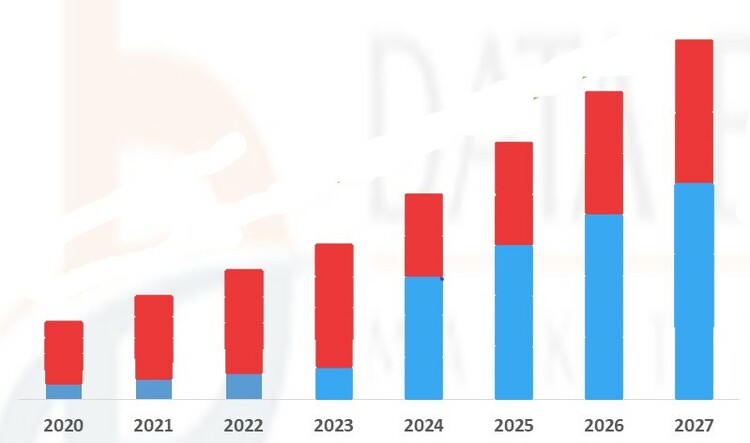 This report includes a detailed analysis of several leading nursing education market vendors in the United States, including Azusa Pacific University, Columbia University, Duke University, Emory University, Johns Hopkins University, NYU Rory Meyers College of Nursing, Rush University, University of California, University of Maryland School of Nursing, and the University of Pensacola.
This report includes a detailed analysis of several leading nursing education market vendors in the United States, including Azusa Pacific University, Columbia University, Duke University, Emory University, Johns Hopkins University, NYU Rory Meyers College of Nursing, Rush University, University of California, University of Maryland School of Nursing, and the University of Pensacola.
In addition, the analytical report on the nursing education market in the United States provides information on forthcoming trends and obstacles that will impact market growth. This is to assist businesses in strategizing and capitalizing on all upcoming growth prospects.
Conference Highlights
- Nursing Education Research
- Nursing Training
- Education and Training for Hospital Employees
- Nursing education faces technological challenges.
- Nursing education in the future
- The demand for more diversity in the nursing workforce
- Nursing Science Research
- Cardiac Nursing
- Intensive Care Nursing
- Clinical nursing specialists
- The care of women
- Practice of community health nursing
- Nursing Practice in Advanced Levels
- Emergency and Unique Situations
To share your views and research, please click here to register for the Conference.
To Collaborate Scientific Professionals around the World
| Conference Date | September 19-20, 2022 | ||
| Sponsors & Exhibitors |
|
||
| Speaker Opportunity Closed | |||
| Poster Opportunity Closed | Click Here to View | ||
Useful Links
Special Issues
All accepted abstracts will be published in respective Our International Journals.
Abstracts will be provided with Digital Object Identifier by





